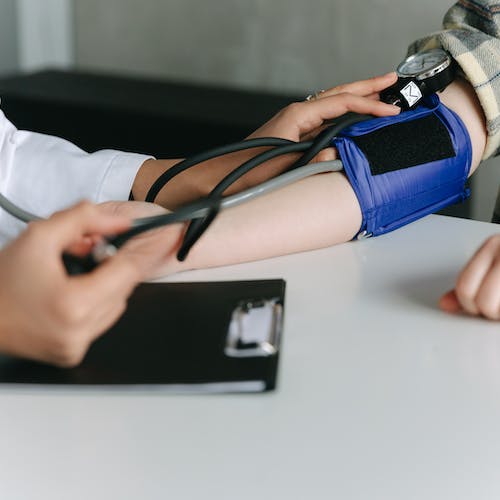Cardiology Services in Fortune Healthcare Ltd.
Fortune Healthcare Ltd.’s cardiology Services division isn’t just about treating heart diseases; it’s about enhancing the quality of life. Their holistic approach, combined with state-of-the-art facilities, positions them as a leading healthcare provider in the realm of cardiology. Whether you’re seeking routine cardiac care, advanced interventions, or guidance on heart health, Fortune Healthcare is the place where your heart is in the best hands.
The heart, being one of the most crucial organs in the body, necessitates specialized care. Fortune Healthcare Ltd., a beacon of excellence in the medical field, recognizes this need. At their Hospital & Diagnostics division, cardiology isn’t just a service; it’s a commitment. Let’s delve into the breadth and depth of cardiology services they offer.
1. Cutting-Edge Diagnostic Procedures
One of the hallmarks of Fortune Healthcare Ltd.’s cardiology division is its advanced diagnostic arsenal. With state-of-the-art technology, patients can be assured of accurate and prompt diagnoses. Their services include:
- Echocardiography: This non-invasive test captures images of the heart, assessing its size, structure, and functional capacity.
- Stress Tests: Evaluating the heart’s performance under stress, this test can uncover potential blockages and assess risk.
- Holter Monitoring: A 24-hour recording system, it tracks heart rhythms to identify irregularities.
- Cardiac CT and MRI: These imaging studies give a detailed view of the heart and surrounding structures, crucial for planning interventions.
2. Expert Team of Cardiologists
Fortune Healthcare Ltd. prides itself on a panel of renowned cardiologists. With years of experience and a patient-centric approach, their team offers consultations, second opinions, and management strategies for various heart conditions, from hypertension to complex congenital anomalies.
3. Interventional Cardiology
For patients requiring more than just medication, the interventional cardiology unit stands ready:
- Angioplasty: A minimally invasive procedure, it clears blocked arteries using a balloon-tipped catheter.
- Stenting: This involves placing a mesh tube inside the artery to keep it open.
- Electrophysiology Studies: A diagnostic procedure to understand the nature of abnormal heart rhythms.
- Ablation Therapy: Used to treat arrhythmias, this procedure carefully destroys the tissue causing the irregularity.
4. Cardiac Surgery
Fortune Healthcare Ltd.’s cardiology unit boasts a comprehensive cardiac surgery department. From bypass surgeries to valve replacements, their surgical team is equipped for high-risk cases, ensuring the best outcomes.
5. Cardiac Rehabilitation
Recovering from cardiac events or surgeries requires more than just medication. The cardiac rehabilitation program at Fortune Healthcare Ltd. aids patients in regaining strength, understanding their condition, and adopting heart-healthy lifestyles.
6. Pediatric Cardiology
Children aren’t just small adults. Their cardiac needs are unique, and Fortune Healthcare Ltd. understands this. Their pediatric cardiology department caters specifically to young hearts, ensuring they beat healthily into adulthood.
7. Preventive Cardiology
An ounce of prevention is worth a pound of cure. The preventive cardiology unit works diligently to identify risks early, advocate for a heart-healthy lifestyle, and monitor patients at risk, all to ensure heart diseases are kept at bay.
8. Patient Education and Support
Fortune Healthcare believes in empowering its patients. Through workshops, information sessions, and one-on-one counseling, patients and their families are equipped with the knowledge to manage their conditions effectively.
9. Technological Advancements
In the ever-evolving field of cardiology, keeping abreast with the latest technological advancements is paramount. Fortune Healthcare Ltd. invests significantly in acquiring the latest machines and training their staff to ensure that patients benefit from the latest in cardiac care. From advanced 3D heart mapping systems to robotic-assisted cardiac surgeries, they are at the forefront of innovation.
10. Comprehensive Aftercare
Once a patient undergoes a procedure or surgery, the journey doesn’t end there. Fortune Healthcare’s comprehensive aftercare ensures that the recovery process is smooth and complication-free. With regular follow-ups, medication management, and lifestyle coaching, patients are guided every step of the way, post-treatment.
11. Emergency Cardiac Care
Emergencies, especially cardiac ones, need immediate attention. The hospital’s 24/7 emergency cardiac unit is equipped to handle the most critical cases with rapid response teams and state-of-the-art infrastructure. Every second count, and their streamlined processes ensure that patients get the care they need without delay.
12. Research & Development
Fortune Healthcare Ltd. isn’t content with just offering treatments. They’re continually pushing the boundaries of what’s possible in cardiac care. Their dedicated R&D unit collaborates with global institutions, pioneering research that can redefine cardiac treatments in the future.
13. Heart Health Workshops
Awareness is a powerful tool in the fight against heart diseases. Fortune Healthcare conducts regular workshops for the public, focusing on the importance of diet, exercise, and regular check-ups. These sessions are not just informative but also interactive, offering participants a hands-on approach to understanding their heart health.
14. A Holistic Approach
Beyond just medical treatments, the cardiology department believes in a holistic approach to heart health. This includes offering services like nutritional counseling, yoga sessions, and psychological counseling to ensure that the heart and mind are in harmony.
15. Affordability & Transparency
Quality cardiac care shouldn’t be a luxury. Fortune Healthcare Ltd. is committed to providing top-tier services at transparent and affordable rates. With various health packages, insurance tie-ups, and financing options, patients can access the best in cardiac care without financial burdens.
